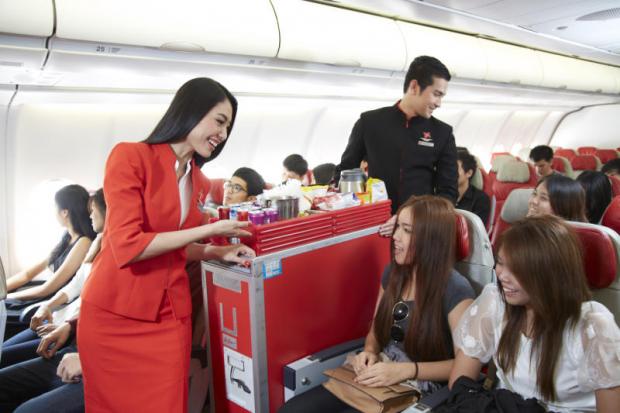
Airlines are seeing increased numbers of unruly passengers around the world and in Thailand as more people take to the skies.
The number of such incidents reported to the International Air Transport Association (IATA) by airlines increased 16.5% last year to 10,854. The figures amount to one occurrence for every 1,205 flights in 2015, making life more difficult for airlines.
According to the global airline body, the bulk of the incidents involved verbal abuse, failure to follow lawful crew instructions and other forms of anti-social behaviour.
A significant proportion (11%) of the reports indicated physical aggression toward passengers or crew or damage to the aircraft, IATA said in its analysis.
Alcohol or drug intoxication was identified as a factor in 23% of cases, though in the vast majority of instances consumption occurred before boarding or from personal supplies the crews had no knowledge of.
The number of unruly passenger incidents appears to be growing in tandem with the rise in passenger volumes, which last year amounted to 3.6 billion, up by 7.2% from 2014, according to IATA figures.
The number of incidents could grow this year on IATA's projection of a 6.2% rise in passenger demand accelerated by low air fares, driven by low oil prices.
"The anti-social behaviour of a tiny minority of customers can have unpleasant consequences for the safety and comfort of all on board," said IATA director-general Alexandre de Juniac.
The increase in reported incidents showed that more effective deterrents are needed, he said. Airlines and airports are guided by core principles developed in 2014 to help prevent and manage such incidents.
"We cannot do it alone. That's why we are encouraging more governments to ratify the Montreal Protocol 2014," he said.
The Tokyo Convention was updated with the Montreal Protocol in 2014 to close gaps in the international legal framework for dealing with unruly passengers. To date, six states have ratified the Protocol.
"More are needed in order to have a consistent global approach to this issue," Mr de Juniac said.
The airline industry also set out core principles for a balanced, multi-stakeholder strategy for tackling unruly behaviour in 2014, based around enhancing international deterrents and more effective prevention and management of incidents.
In some countries there has been a focus on the role of alcohol as a trigger for disruptive behaviour.
Airlines already have strong guidelines and crew training on the responsible provision of alcohol.
IATA is supporting initiatives, such as the code of practice pioneered in Britain, which includes a focus on prevention of intoxication and excessive drinking prior to boarding.
Staff in airport bars and duty-free shops must be trained to sell alcohol responsibly and there is a need to avoid offers that encourage binge drinking.
Evidence from an initiative by Monarch Airlines at London's Gatwick airport has shown that instances of disruptive behaviour can be cut by 50% with this proactive approach before passengers board.
The industry believes that adopting this cooperative voluntary approach is preferable to heavy-handed regulation and licensing.
"There is no easy answer to stem the rise in reported unruly behaviour," IATA said. "We need a balanced solution with which all stakeholders can collaborate."